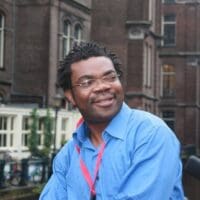
Nourished. Connected. Validated. Protected. Challenged. Humbled. Grateful. These were just a few of the words used by participants at Mind & Life’s 2018 Summer Research Institute (SRI) to describe their experience.
In keeping with the event’s theme, “Engaging Cultural Difference and Human Diversity,” Mind & Life’s 15th annual SRI was the most diverse ever, bringing together over 130 scientists, scholars, students, and activists from 19 countries across 6 continents. More than three quarters of attendees were women; half represented racial minorities. With generous support from the Hershey Foundation and other donors, 45 attendees received scholarships.
Hosted amidst the tranquil setting of the Garrison Institute, the June event explored terrain both professional and deeply personal, prompting one attendee to question: “Why is it some of my most profound learning experiences take place outside of academic walls?” Collected below is a cross-section of participants’ reflections. More in-depth essays will appear on the Mind & Life blog in the weeks ahead.
Many praised the event’s interweaving of social justice themes with contemplative practice as both atypical and essential in today’s deeply divided world. Marisela Gomez’s talk, “Taking Care of Social Justice Inside and Out,” resonated with many attendees, who gained both an understanding of the roots of structural racism and new tools for balancing their lives as social justice advocates—and the emotional pain that can come as a result. Said Akanksha Das, who is pursuing a career in the clinical sciences, “Dr. Gomez showed me what applying contemplative practices—pausing, breathing reflecting—can do to help me take care of myself.”
Paula Ditzel Facci, a peace and conflict studies scholar in Brazil, who employs dance to transform conflict, applauded the diversity of contemplative practices such as meditation, yoga, and qigong integrated throughout the week. Such activities “allowed for exploring the different ways of knowing available to human beings through the body, mind, heart, intuition, and spirit,” she shared.
Several participants cited the partner walking meditation introduced during a silent day as particularly meaningful and relevant to their work. Gia Naranjo-Rivera, a Ph.D. candidate at the Johns Hopkins School of Public Health in Baltimore, Maryland, plans to incorporate the practice into her applied work in teaching mindfulness to disadvantaged youth. Her goal: to nurture a sense of belonging and interconnectedness among young people too often marginalized. “I wonder,” she asks, “if people who often feel isolated—such as those who are low-income, ethnic minorities, LGBTQ, disabled, or experiencing other forms of discrimination (e.g., bullying), may especially benefit from such practices?”
With presentations focused on neuroscience, anthropology, psychology, and social justice, many attendees cited the interdisciplinary nature of the event as essential to gaining a holistic understanding of the complex themes explored. For Stephanie Briggs, who is researching the use of contemplative practices to empower African American educators, Michael Onyebuchi Eze’s presentation, “Communication Between Cultures: Towards a Dialogue of Human Reconciliation,” offered insights into the use of the African philosophy of Ubuntu for helping African American faculty who have experienced oppression and/or aggression.
There was widespread recognition of the importance of creating safer spaces where those who may be emotionally triggered in the course of conversations around discrimination and othering can feel honored, heard, and ‘held’ by the group. For many participants, sessions exposed the layers of disadvantage and marginalization they themselves had experienced.
“I realized that regardless of the unique sufferings we faced,
it was the universal experience of suffering that brought us together
and enabled us to connect at a deeper level.”
For Jane Cha, a Health Psychology postgraduate and an Asian minority living in New Zealand, the breakout sessions and experiential workshops offered rare opportunities for connection and healing. “Through such events,” she said, “I realized that regardless of the unique sufferings we faced, it was the universal experience of suffering that brought us together and enabled us to connect at a deeper level.”
Participants spoke to the richness of the community that formed over the immersive, six-day program. Said one from Brazil, “the environment was so warm, and the people so engaged in understanding each other, that I could notice how they started to soften and heal as they interacted.” The camaraderie that resulted culminated in a “community share” on closing night with dance, poetry readings, singing, and performed calls to action.
After re-engaging with their lives and careers back home, scholarship participants reported back on the 2018 SRI’s overall impact. Ana Maria Medina, an Adjunct Assistant Professor at Pontifical Xavierian University in Bogotá, Colombia, returned home with the recognition that something inside her had changed. “I judge less,” she reflects. “I understand more. I listen more. It seems that my position in the world is sweeter.”

Related Community Members

Marisela Gomez, PhD, MD, MPH
Convening Faculty, Mentor
Marisela Gomez is a community activist, author, public health professional, and physician. She received a BS and MS from the University of New Mexico in Albuquerque; and a PhD, MD, … MORE

Michael Onyebuchi Eze, PhD
University of Amsterdam, University of Cambridge
Michael Onyebuchi Eze currently teaches African political theory at the University of Amsterdam and a fellow at Trinity Hall, University of Cambridge. Until recently, he was a visiting scholar at the … MORE


